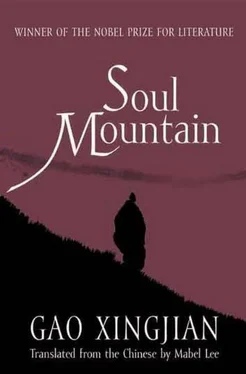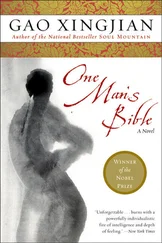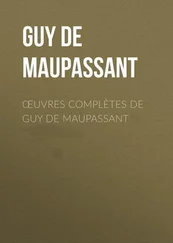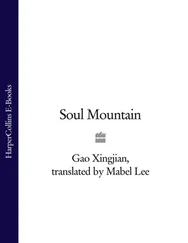When writing is not a livelihood or when one is so engrossed in writing that one forgets why one is writing and for whom one is writing it becomes a necessity and one will write compulsively and give birth to literature. It is this non-utilitarian aspect of literature that is fundamental to literature. That the writing of literature has become a profession is an ugly outcome of the division of labour in modern society and a very bitter fruit for the writer.
This is especially the case in the present age where the market economy has become pervasive and books have also become commodities. Everywhere there are huge undiscriminating markets and not just individual writers but even the societies and movements of past literary schools have all gone. If the writer does not bend to the pressures of the market and refuses to stoop to manufacturing cultural products by writing to satisfy the tastes of fashions and trends, he must make a living by some other means. Literature is not a best-selling book or a book on a ranked list and authors promoted on television are engaged in advertising rather than in writing. Freedom in writing is not conferred and cannot be purchased but comes from an inner need in the writer himself.
Instead of saying that Buddha is in the heart it would be better to say that freedom is in the heart and it simply depends on whether one makes use of it. If one exchanges freedom for something else then the bird that is freedom will fly off, for this is the cost of freedom.
The writer writes what he wants without concern for recompense not only to affirm his self but also to challenge society. This challenge is not pretence and the writer has no need to inflate his ego by becoming a hero or a fighter. Heroes and fighters struggle to achieve some great work or to establish some meritorious deed and these lie beyond the scope of literary works. If the writer wants to challenge society it must be through language and he must rely on the characters and incidents of his works, otherwise he can only harm literature. Literature is not angry shouting and furthermore cannot turn an individual's indignation into accusations. It is only when the feelings of the writer as an individual are dispersed in a work that his feelings will withstand the ravages of time and live on for a long time.
Therefore it is actually not the challenge of the writer to society but rather the challenge of his works. An enduring work is of course a powerful response to the times and society of the writer. The clamour of the writer and his actions may have vanished but as long as there are readers his voice in his writings continues to reverberate.
Indeed such a challenge cannot transform society. It is merely an individual aspiring to transcend the limitations of the social ecology and taking a very inconspicuous stance. However this is by no means an ordinary stance for it is one that takes pride in being human. It would be sad if human history is only manipulated by the unknowable laws and moves blindly with the current so that the different voices of individuals cannot be heard. It is in this sense that literature fills in the gaps of history. When the great laws of history are not used to explain humankind it will be possible for people to leave behind their own voices. History is not all that humankind possesses, there is also the legacy of literature. In literature the people are inventions but they retain an essential belief in their own self-worth.
Honourable members of the Academy, I thank you for awarding this Nobel Prize to literature, to literature that is unwavering in its independence, that avoids neither human suffering nor political oppression and that furthermore does not serve politics. I thank all of you for awarding this most prestigious prize for works that are far removed from the writings of the market, works that have aroused little attention but are actually worth reading. At the same time, I also thank the Swedish Academy for allowing me to ascend this dais to speak before the eyes of the world. A frail individual's weak voice that is hardly worth listening to and that normally would not be heard in the public media has been allowed to address the world. However I believe that this is precisely the meaning of the Nobel Prize and I thank everyone for this opportunity to speak.
* * *
Translation by Mabel Lee
Major Publications by Gao Xingjian
Xiandai xiaoshuo jiqiao chutan (A Preliminary Discussion of the Art of Modern Fiction). Guangzhou: Huacheng Chubanshe, 1981. [Literary criticism]
You zhi gezi jiao Hongchunr (A Pigeon Called Red Beak). Beijing Chubanshe, 1985. [A novella]
Gao Xingjian xiju ji (Collected Plays of Gao Xingjian). Beijing: Qunzhong Chubanshe, 1985. [Includes the plays Juedui xinhao (Absolute Signal), Chezhan (Bus Stop), Yeren (Wild Man), Duibai (Soliloquy), Xiandai zhezixi sichu (Four Modern Opera Excerpts)]
Dui yizhong xiandai xiju de zuiqiu (In Search of a Modern Form of Dramatic Representation). Beijing: Zhongguo Xiju Chubanshe, 1987. [Essays on theatre and dramatic representation]
Gei wo laoye mai yugan (Buying a Fishing Rod for My Grandfather). Taipei: Lianhe fWenxue Chubanshe, 1988. [A collection of short stories]
Lingshan (Soul Mountain). Taipei: Lianjing Chubanshe, 1990. [A novel]
Shanhaijing zhuan (Story of the Classic of Mountains and Seas ). Hong Kong: Tiandi Tushu Youxian Gongsi, 1993. [A play based on myths and legends in the Classic of Mountains and Seas ]
Dialoguer/Interloquer . Paris: MEET, 1994. [French version by Gao Xingjian]
Gao Xingjian xiju liuzhong (Six plays by Gao Xingjian). Taipei: Dijiao, 1995. [Includes the plays Bi’an (Other Shore), Mingcheng (Netherworld), Sheng sheng man bianzou (Variations on a Slow Tune), Shanhaijing zhuan (Story of the Classic of Mountains and Seas ), Taowang (Absconding), Sheng si jie (Between Life and Death), Duihua yu fanjie (Dialogue and Rebuttal), Yeyoushen (Nocturnal Wanderer)]
Le Somnambule . Carnières-Morlanwelz (Belgium): Editions Lansman, 1995. [French version by Gao Xingjian]
Ink Paintings by Gao Xingjian . Taipei Fine Arts Museum, 1995.
Goût de l’encre . Paris: Editions voix Richard Meir, 1996.
Meiyou zhuyi (Without Isms). Hong Kong: Tiandi Tushu Youxian Gongsi, 1996. [Essays on literature and art]
Zhoumo sichongzou (Weekend Quartet). Hong Kong: Xin Shiji Chubanshe, 1996. [Includes the plays Zhoumo sichongzou (Weekend Quartet), Shunjian (One Instant), Sheng sheng man bianzou (Variations on a Slow Tune), Wo shuo ciwei (I Tell the Hedgehog)]
Au plus près du réel: Dialogues sur l’écriture (1994–1997) , co-author Denis Bourgeois. Paris: Éditions de l’aube, 1997. [Recorded conversations on literature over three years between Gao Xingjian and Denis Bourgeois]
Quatre quatuors pour un week-end . Carnières-Morlanwelz (Belgium): Editions Lansman, 1998. [French version by Gao Xingjian]
L’Encre et la lumière . Paris: Editions voix Richard Meir, 1998.
Yige ren de shengjing (One Man’s Bible). Taipei: Lianjing Chubanshe, 1999. [A novel]
Une Autre esthétique . Paris: Editions Cercle d’art, 2000.
English Language Translations of Gao Xingjian’s Works
Aspfors, Lena and Torbjörn Lodén, trans., “The Voice of the Individual”, The Stockholm Journal of East Asian Studies , 3 (1993).
Besio, Kimberley, trans., “ Bus Stop : A Lyrical Comedy on Life in One Act” in Haiping Yan, ed., Theatre and Society: An Anthology of Contemporary Chinese Drama , Armonk, New York and London: M. E. Sharpe, 1998.
Читать дальше
Конец ознакомительного отрывка
Купить книгу












